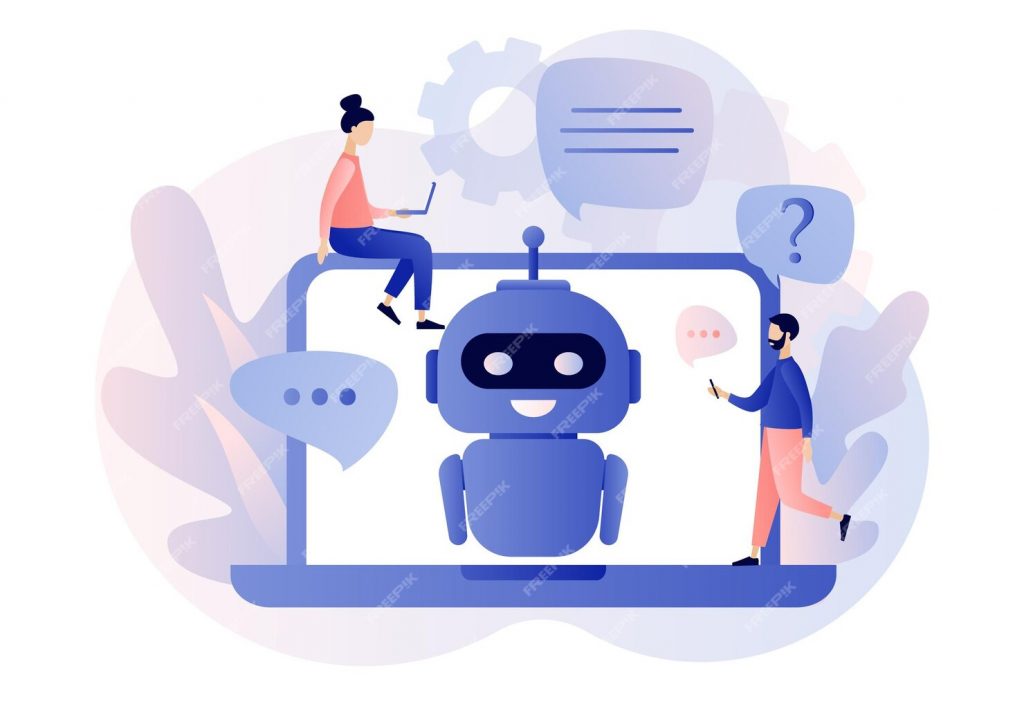AI agents are transforming customer support by offering faster, more personalized, and round-the-clock service. These intelligent systems use machine learning, natural language processing (NLP), and automation to understand customer queries, provide accurate responses, and improve user experience.
From chatbots to virtual assistants, AI agents enable businesses to handle high volumes of customer requests efficiently.
Tools like AI-powered chatbots, voice assistants, and self-service portals streamline support, reduce response times, and enhance customer satisfaction. Companies benefit from improved efficiency, cost savings, and the ability to provide consistent support. With AI agents handling routine queries, human agents can focus on complex customer issues, leading to more impactful customer service experiences.
As AI technology evolves, these tools are becoming essential for businesses looking to provide fast, reliable, and personalized support across multiple channels.
Key Takeaways
- AI-powered customization delivers personalized customer support for better engagement.
- Generative AI enables chatbots to create dynamic, context-aware responses.
- AI-driven insights from customer data improve decision-making and service.
- Generative AI enhances agent training with real-world simulation and skill development.
- Businesses benefit from improved customer satisfaction and brand loyalty.
- Personalized support boosts engagement, leading to better customer retention.
- Proactive support anticipates customer needs, enhancing user experience.
- Hybrid support models integrate AI chatbots with human agents for seamless service.
- Continuous learning through AI ensures adaptability to changing customer needs.
- Smarter customer support drives efficiency, personalization, and better business outcomes.
What Are AI Agents in Customer Support?
AI agents in customer support are intelligent virtual assistants that streamline service processes, enhance efficiency, and deliver personalized customer experiences. They operate through a three-step process: observation, decision-making, and action. By collecting data from user interactions, AI agents analyze information using algorithms to make decisions and provide timely support.
Key features like 24/7 availability, scalable efficiency, and personalized interactions allow businesses to offer faster, more accurate assistance. These agents handle routine tasks, enabling human support teams to focus on complex customer needs. With AI-powered tools like chatbots, voice assistants, and self-service portals, companies can enhance customer satisfaction and drive engagement.
This shift is transforming the way businesses connect with their customers, fostering more meaningful and responsive customer service experiences.
Key Tools Utilized by AI Agents in Customer Support
AI agents in customer support utilize a range of tools – including AI chatbots, sentiment analysis, and predictive analytics. These tools enable AI agents to provide instant support, understand customer emotions, and even anticipate their needs.
AI Chatbots for Instant Support
AI chatbots provide instant support using machine learning algorithms (ML)and natural language processing (NLP). They help companies handle high inquiry volumes without downtime – offering customers 24/7 availability.
Companies can grow revenues faster by providing excellent customer experiences through chatbots – up to 4%-8% higher revenue growth.
Chatbots process customer inquiries instantly using automated workflows – freeing up human customer support agents’ time for more complex tasks requiring empathy or deeper problem-solving skills.

Sentiment Analysis for Understanding Customers
Building on the capabilities of AI chatbots, the next crucial tool is Sentiment Analysis for Understanding Customers. Sentiment Analysis tools recognize customer emotions for prioritization.
They use natural language processing and machine learning algorithms to understand the emotional tone of customer interactions. Emotion recognition helps improve customer satisfaction by addressing emotional cues. By identifying how customers feel, AI agents can provide more empathetic and personalized support, leading to increased customer loyalty and retention.
Your most unhappy customers are your greatest source of learning. – Bill Gates
Predictive Analytics for Proactive Service
AI agents use predictive analytics tools like machine learning algorithms predict what customers need before they ask so that companies can give better service proactively.
They look at what customers have done before – such as purchases or searches – analyze this behavior using predictive modeling tools such as decision trees or neural networks – giving businesses valuable insights about their customers’ behavior.
Automated Escalation and Ticket Management
Automated escalation tools enhance ticket tracking and resolution by efficiently logging issues and ensuring accurate ticket assignments. AI-powered tools streamline the process, enabling faster responses and improving accuracy. By automating ticket assignments, service teams can focus on complex issues, leading to faster resolutions and higher customer satisfaction.
These tools prioritize and address complex issues promptly, keeping service desks organized and productive. Companies benefit from reduced manual effort, improved service quality, and the ability to resolve more tickets efficiently while maintaining high service delivery standards.
Personalization Through AI-Powered Interactions
AI agents use personalization to create tailored user experiences by analyzing customer behavior, like music preferences on platforms such as Spotify. They leverage advanced data analysis to design focused campaigns, offering unique recommendations and personalized interactions. By adapting to user preferences, businesses can boost customer engagement, drive higher conversion rates, and increase revenue.
These AI-driven insights allow companies to refine customer journeys, improve satisfaction, and deliver individualized experiences at scale. Personalization powered by AI promotes innovation, efficiency, and growth, positioning businesses for success in the digital marketplace.
Automated Knowledge Base Management
AI-Powered Knowledge Bases provide self-service articles and guides for customer support. This reduces the need for human intervention in routine queries.
Automated Knowledge Base Management improves operational efficiency with immediate assistance. It offers 24/7 support through AI-powered customer support systems, resulting in better customer service efficiency and increased productivity.
Speech Recognition for Voice Support
Speech recognition lets people talk to devices. Virtual assistants like Siri and Alexa use it.
Speech recognition technologies make it easy to gather data through voice commands. They enhance accessibility and convenience for users, making automated customer support seamless and innovative with natural language processing.
AI-Driven Performance Analytics for Agents
AI agents use performance analytics to track key metrics like resolution rates, call handling times, customer satisfaction, and response accuracy. These insights help managers identify team strengths, skill gaps, and training needs. By analyzing productivity, customer effort scores (CES), and training effectiveness, businesses can create targeted coaching programs tailored to specific needs.
Performance analytics enable continuous improvement in agent performance, optimize workflows, and boost customer satisfaction. With data-driven insights, companies can enhance operational efficiency, improve employee development, and achieve higher returns on investment (ROI).
Customer Journey Mapping with AI
AI-powered analytics shed light on customer interactions. Customer journey mapping with AI analyzes these interactions to pinpoint trends, problems, and areas for improvement.
It enhances customer experience by addressing pain points identified through AI-driven data analysis and interaction analysis. This results in more efficient problem-solving and improvement strategies for businesses, all centered around customer feedback and needs.
AI-Driven Cross-Selling and Up-Selling
AI-Driven Cross-Selling and Up-Selling use customers’ browsing habits to make recommendations. This method increases customer engagement and satisfaction. It also boosts sales by suggesting products based on customer preferences.
AI-Driven Cross-Selling and Up-Selling provide personalized offers that customers are likely to accept. By analyzing customer interactions, AI identifies the best time to present these offers.
This helps companies sell more products and build strong relationships with their customers.

Benefits of AI in Customer Support
24/7 Availability
AI agents offer uninterrupted support, operating 24/7 to ensure customer queries are addressed instantly. They handle large volumes of requests simultaneously, providing consistent service at any hour. This round-the-clock availability enhances customer satisfaction as users receive support whenever they need it.
Companies benefit from continuous service delivery, improved client engagement, and faster response times. By maintaining consistent support without human limitations, AI agents enable businesses to meet customer expectations for quick, efficient, and always-available assistance.
Multilingual Support
AI-powered multilingual support allows companies to engage with a global audience in multiple languages. Real-time translation tools enable seamless communication between customers and support teams, breaking down language barriers.
This localization improves the customer experience, making interactions smoother and more personalized. With AI agents offering support in various languages, businesses can expand globally, provide inclusive customer service, and increase user satisfaction. The result is stronger customer relationships and greater accessibility for non-native speakers.
Enhanced Customer Experience
AI agents personalize customer interactions using behavioral data and sentiment analysis to tailor responses. By identifying customer needs and preferences, AI creates customized support experiences. Instant responses and emotion-aware communication lead to higher customer satisfaction.
Personalized recommendations and proactive solutions further strengthen customer relationships. This personalized approach increases brand loyalty and revenue growth as customers receive efficient, tailored service. Companies offering AI-powered customer support often see higher engagement and long-term customer retention.
Increased Efficiency and Cost Reduction
AI agents automate routine tasks, improving efficiency and reducing operational costs. By handling tasks like customer inquiries, scheduling, and data processing, companies can save time and reallocate human resources for higher-impact activities.
AI-driven tools increase productivity, streamline workflows, and improve accuracy in daily operations. Businesses experience lower operational costs while maintaining fast, efficient service. This shift allows for greater focus on growth initiatives, improved resource allocation, and better overall performance.
Scalability of Services
AI agents offer scalable solutions that adapt to fluctuating inquiry volumes. Unlike traditional systems, AI-driven support scales seamlessly, handling large customer bases with speed and consistency. These agents maintain service quality regardless of the number of requests, ensuring uninterrupted support.
Businesses benefit from reduced staffing needs and the ability to manage large-scale customer service operations efficiently. This scalability supports business growth, allowing companies to meet rising demand while maintaining high-quality service for every customer.
Improved Accuracy in Customer Interaction
AI-powered support tools improve the accuracy of customer interactions by using predictive analytics, machine learning, and sentiment analysis. These advanced technologies enable AI agents to offer precise responses and effective solutions.
As the AI system learns from past interactions, its accuracy improves, reducing errors in customer handling. Companies benefit from faster query resolution, better customer satisfaction, and reduced response time. Enhanced precision allows businesses to maintain high service standards and build stronger customer trust.
Data-Driven Insights for Better Decision Making
AI agents analyze customer interaction data to provide actionable insights that inform decision-making. Using machine learning and data analysis, companies can identify customer behavior patterns, refine marketing strategies, and improve customer service.
Feedback loops enable continuous learning, ensuring that AI-driven insights become more accurate over time. Businesses use these insights to optimize customer experiences, develop better products, and tailor support strategies. This data-driven approach leads to smarter decisions, better business outcomes, and greater operational efficiency.
Challenges of Using AI in Customer Support
Integration with Existing Systems
Integrating AI agents with existing systems like CRM software requires careful planning and execution. Legacy platforms may not be designed for modern AI integration, leading to compatibility challenges. Companies must ensure that new AI tools align with their existing infrastructure to maximize efficiency.
Integration also involves training employees on new systems and updating workflows. Addressing these challenges requires strategic planning, investment in resources, and employee support to ensure smooth system alignment and long-term success
Training and Maintenance Requirements
AI agents require continuous training and updates to remain effective. Companies must train employees to manage, monitor, and oversee AI systems. Regular updates ensure the system stays relevant as industry needs evolve.
Maintenance involves regular system checks, troubleshooting, and optimizing performance to avoid disruptions. Companies must also allocate resources for technical support and system upgrades. By maintaining well-trained teams and up-to-date systems, companies ensure AI agents continue to deliver efficient and high-quality support.
Ensuring Privacy and Security Compliance
Privacy and security compliance is a top priority for companies using AI agents. Businesses must adhere to global regulations like GDPR and HIPAA to ensure customer data is handled securely and ethically. This includes implementing encryption, access controls, and transparent data-handling practices.
By prioritizing confidentiality, integrity, and customer trust, companies create a secure environment for customer interactions. Compliance with privacy regulations not only safeguards sensitive data but also strengthens brand reputation and customer loyalty.
Handling Complex Customer Interactions
While AI agents excel at handling routine inquiries, complex customer issues may require human intervention. Complex interactions, like those involving emotions or unique customer needs, are often beyond the scope of AI alone. Companies address this challenge by using a human-in-the-loop approach, where human agents step in when AI encounters a complex situation.
Businesses also use continuous learning models to improve AI performance over time, making it better at handling sophisticated customer requests. This approach ensures that customers receive the support they need, even for more nuanced inquiries.
Future Trends in AI for Customer Support
AI-Powered Customization and Personalization
AI is shaping the future of customer support by providing personalized experiences through dynamic content generation. Generative AI enables companies to deliver tailored customer interactions by analyzing user preferences and needs. For example, companies can create personalized onboarding guides or customized email support for new users.
By anticipating customer needs and offering proactive support, brands can boost customer satisfaction and foster brand loyalty. This approach is being applied across industries like healthcare, where personalized support for patients can significantly improve care experiences.
Generative AI for Dynamic Interaction Scripts
Generative AI is transforming customer support chatbots by enabling dynamic, personalized interactions. Unlike static scripts, generative AI can create adaptive conversation flows in real time, responding more naturally to customer inquiries.
This approach allows support chatbots to provide more relevant and engaging responses, resulting in better customer experiences. Businesses use AI-generated scripts to create context-aware conversations that address specific customer needs, leading to faster problem resolution and higher satisfaction rates.
AI-Driven Insights from Client Data
AI-driven insights help companies improve decision-making by analyzing customer interactions, feedback, and preferences. By processing data from emails, chats, and social media, AI identifies trends and patterns in customer behavior. Companies use these insights to enhance products, refine services, and deliver more relevant customer support.
This data-driven approach enables businesses to anticipate customer needs, tailor product recommendations, and create better support experiences. By leveraging AI-driven insights, companies can achieve higher satisfaction and stronger customer relationships.
Training for Customer Support Teams Using Generative AI
Generative AI is revolutionizing the way customer support teams are trained. Using simulated conversations based on real customer interactions, AI-powered training programs help agents develop problem-solving and communication skills. This approach allows support teams to handle real-world scenarios more effectively.
By improving agent skills, companies can enhance the overall customer experience and achieve higher satisfaction scores. AI-driven training also supports hybrid models, where agents work alongside chatbots to deliver seamless support, ensuring human agents are prepared for more complex queries.
Conclusion
The future of AI in customer support is centered around personalization, dynamic interactions, data-driven insights, and smarter training. Generative AI allows businesses to create tailored customer experiences, while AI-driven chatbots deliver real-time, context-aware support.
Companies are using client data to refine products, enhance services, and offer proactive customer care. Generative AI also revolutionizes agent training, equipping teams with the skills to handle complex queries effectively. As these trends evolve, businesses can expect higher customer satisfaction, stronger brand loyalty, and greater operational efficiency.
By adopting AI-driven solutions, companies position themselves to deliver seamless support, boost customer engagement, and maintain a competitive edge in an ever-evolving digital landscape.
Frequently Asked Questions about AI Agents
What are AI agents in customer support?
AI agents are computer programs that use artificial intelligence to help customers with their questions and problems – they’re like virtual customer support reps.
What tools do AI agents use?
AI agents use tools like chatbots, messaging platforms, and helpdesk software to talk to customers and solve their issues.
What are the benefits of using AI agents in customer support?
AI agents can answer customer questions 24/7, help with simple problems, and free up human customer support reps to focus on harder issues – making customer support faster and more efficient.
Are AI agents being used in real-world applications?
Yes, many companies are using AI agents to help with customer support – like answering frequently asked questions, helping with returns and exchanges, and even providing personalized product recommendations.



